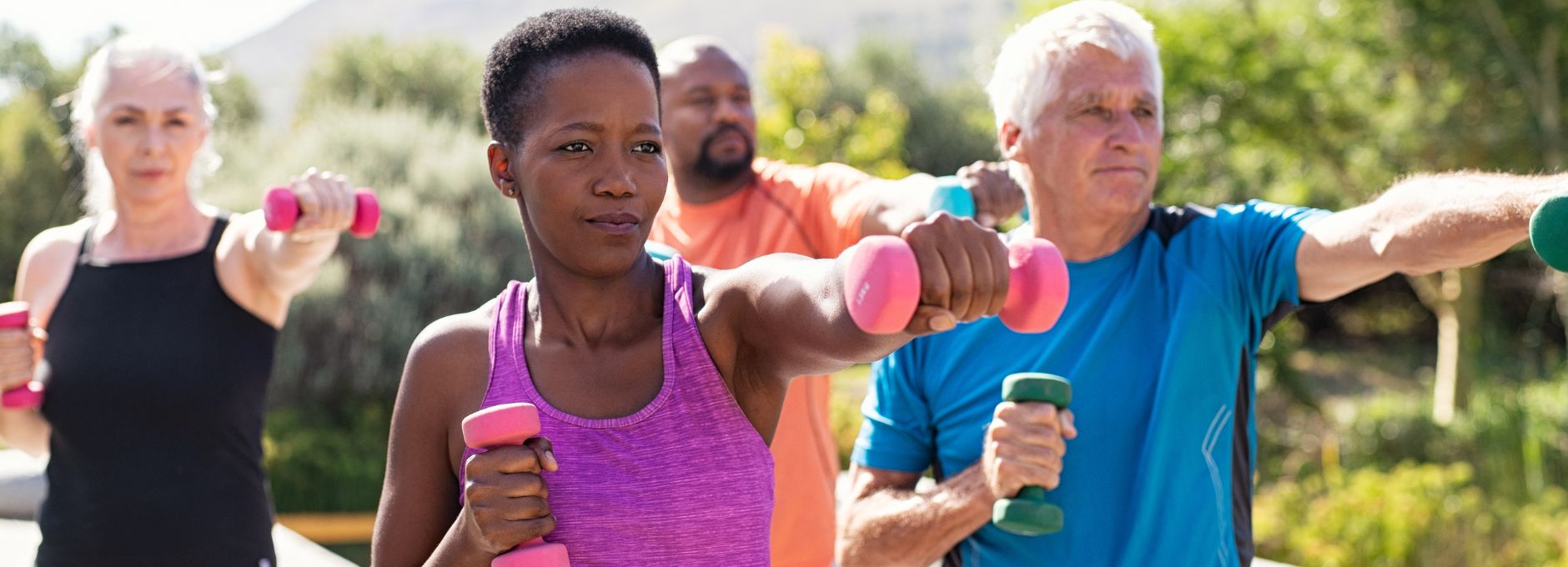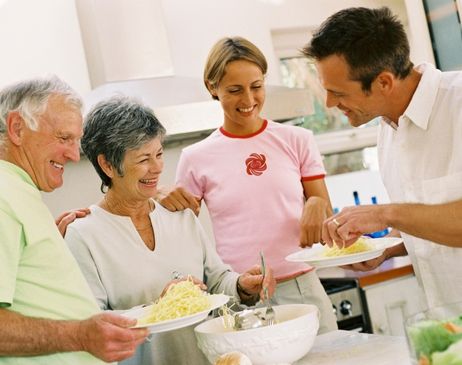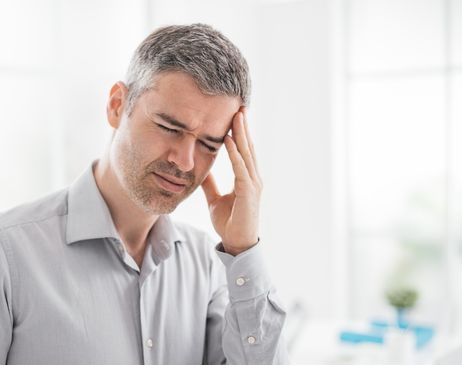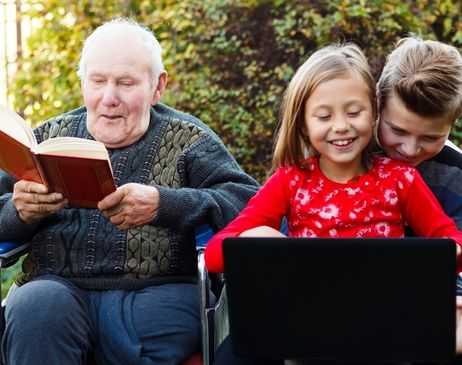The Link Between Age and Weight Loss
TRACK YOUR WEIGHT
The Link Between Age and Weight Loss

What’s the link between age and weight? In fact: this relationship is a close one. Generally-speaking, your weight will go up as your age does, meaning weight loss and age are inextricably linked. But why does this happen? Let’s take a closer look at everything you need to know.
The relationship between age and weight
On average, muscle mass declines with age, and even in older people with stable weight, muscle is replaced by fat over time, making old age and weight loss a challenging combination1. We also tend to store more weight around our waist and stomach, which is something to watch, as it can be dangerous.
This is because visceral fat (fat close to your organs) around the abdomen increases the risk of a number of serious health complaints. These include heart disease, diabetes, strokes, cancer and high blood pressure2.
Why it’s easier to gain weight as you age
Let’s take a look at some of the key reasons why it’s harder to lose weight as you age.
 1, Metabolism slows as you age
1, Metabolism slows as you age
Muscle loss can slow down metabolic rate, meaning it’s harder to lose weight as you age. You tend to lose muscle as you get older, and even when you’re at rest, your body needs energy for all essential functions, such as breathing, circulating blood, adjusting hormone levels, and growing and repairing cells. The number of calories your body uses to carry out these basic functions is known as your basal metabolic rate; what is commonly referred to as ‘metabolism’3.
Several factors determine your individual basal metabolism, including:
- Body size and muscle mass
- People who are larger, or have more muscle burn more calories, even when doing nothing at all
- Sex
- Men usually have less body fat and more muscle than do women of the same age and weight, which means men burn more calories
- Age
- As you get older, your amount muscle tends to decrease and fat accounts for more of your weight, slowing down calorie burning
 2, Less likely to exercise
2, Less likely to exercise
Generally, as we age, we’re less active and live a more sedentary lifestyle. Physical activity accounts for some of the calories we burn each day, whether that’s walking, working out or doing day-to-day tasks like cleaning.
So, moving less combined with a slower metabolism can make it much easier to consume more calories than you burn. This can lead to weight gain as you get older.
 3, Hormone changes
3, Hormone changes
Middle age is prime time for putting on pounds, partly because of hormonal changes that make your age and weight loss difficult. Menopause can make you more likely to put on weight around your belly.
Men, on the other hand, experience a drop in testosterone as they age, which begins to gradually decline around the age of 404. Testosterone is responsible for regulating fat distribution and muscle strength and mass (among other things). Therefore, a decline in it can make the body less effective at burning calories.
 4, More stress
4, More stress
You may experience more work-related stress, which can increase the level of the hormone ghrelin, which makes you hungrier. This means as you age, weight loss may be more difficult as you may be generally more stressed.
 5, Lifestyle changes
5, Lifestyle changes
Weight gain as you age can also be due to your lifestyle, and nothing to do with changes going on with your body. For example, family commitments can give you less time to go to the gym. Lack of time for yourself can mean your diet and exercise plans slip. This is totally normal – but also avoidable.
Are there differences between older men and women?
Men are more likely to be overweight when compared to women. However, obesity is more common in women. Generally, women tend to gain weight in the thighs and hips, prior to menopause5. Meanwhile, men tend to gain weight around their middle.
The hormonal changes of menopause might make people more likely to gain weight around their abdomen than around the hips and thighs. But, hormonal changes alone don’t necessarily cause menopause weight gain. Instead, the weight gain is usually related to ageing, such as the loss of muscle mass, as well as lifestyle and genetic factors6. However, these excess pounds aren’t inevitable.
How to lose weight as you age
While it can be harder to lose weight as you age, it’s definitely not impossible to maintain a healthy weight. Certain factors can make it more difficult, but there are ways around it. Here are some top tips to help you lose, or maintain your weight:
- Exercise portion control
- Focus on whole foods and eating less processed ones
- Stay well hydrated
- Manage stress levels
- Move more (even if you don’t have time for workouts, walk more – and take the stairs rather than the lift every time)
- Get enough sleep, lack of it can slow down metabolism
- Lift weights to reduce the risk of muscle loss
- Eat a healthy diet
Weight gain is not inevitable
Certain factors make it harder to lose weight as you age. However, there are things you can do to ensure you still maintain a healthy weight. It’s important to stay active, even if that’s simply increasing your step count everyday. You should also take care to watch what you eat and ensure your diet is full of plenty of whole foods and less processed ones. Look after your body from the inside and it will show on the outside!
For more information on how to lose weight as you age, and other tips and guidance on reaching your weight loss goals, explore the XLS blog today.
 1, Metabolism slows as you age
1, Metabolism slows as you age 2, Less likely to exercise
2, Less likely to exercise 3, Hormone changes
3, Hormone changes 4, More stress
4, More stress 5, Lifestyle changes
5, Lifestyle changes